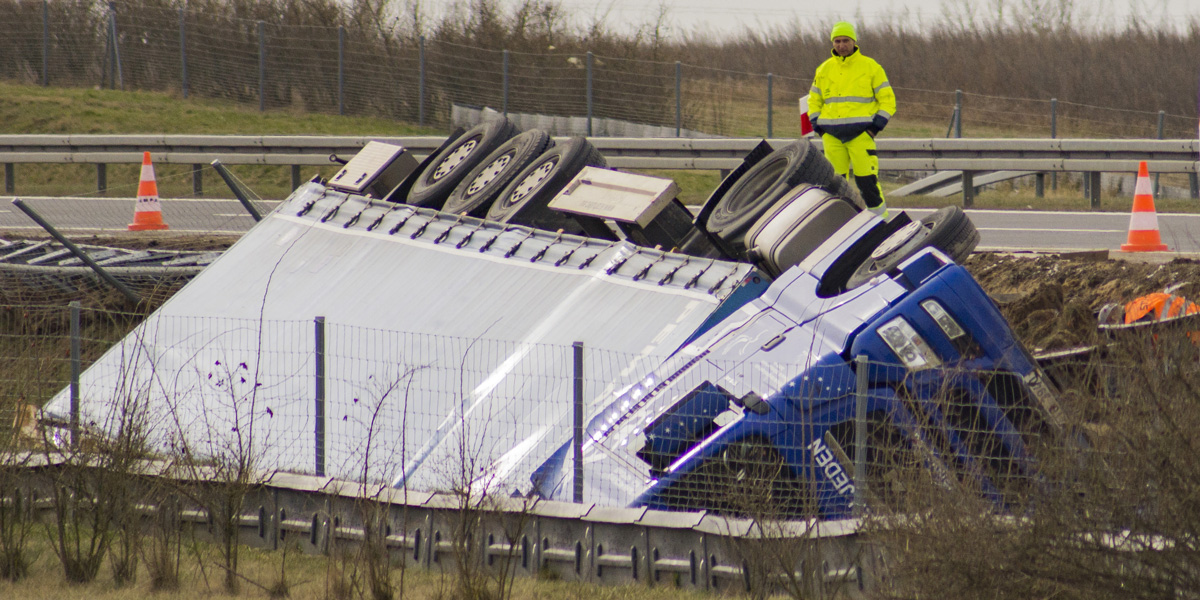Has Brexit just made our roads less safe?

UK haulage is facing a major crisis due to a chronic shortage of drivers. The industry estimates that it needs around 100,000 more HGV-qualified drivers. Some of this is due to Coronavirus – 30,000 UK tests were unable to take place during the lockdown and some drivers have been asked to self-isolate in the so-called ‘pingdemic’. But by far and away the biggest contributing factor is the shortage of migrants and the massive amounts of red tape that has to be traversed in order to recruit the workers the UK has for years depended on. In Scotland, where very few track and trace ‘ping’ notices have gone out, and geography makes it dependent on HGV drivers working in supply chains which move from Mainland Europe through England, these problems have hit shops’ food and goods supplies.
The response of the UK government encapsulates Brexit
There are broadly two progressive options that could be pursued to deal with the crisis. First, the government could work with unions and employers to develop a plan for raising pay, conditions, and supporting training. This could make work in the sector more attractive, though some of these changes would take time to have an effect. Second, it could develop an attractive visa scheme for migrants workers, with built in strong protections for employment rights and including opportunities to settle permanently in the UK for those that would like to do so. It could also immediately waive all visa requirements for HGV qualified drivers and restore a form of freedom of movement for industry workers.
These measures would, however, require accepting that the UK benefits from a close relationship with Europe including making it easier for people to move for work. They would imply that freedom of movement rights can go hand in hand with strong employment standards. Unfortunately, these are not arguments the current government accepts.
In fact, their response to the current crisis speaks volumes for how they view Brexit. The government has decided to launch a dangerous attack on health and safety. They have increased the daily limit on driving hours from 9 to 10 hours (with two drives of 11 hours allowed twice a week, rather than 10 hours as the rules state at the moment). Industry insiders have warned that the government’s solution will hurt health and safety, making our roads much less safe for all. By introducing longer hours, even temporarily, it also makes workers more likely to leave the sector, and discourage others from taking up the job.
Bosses and unions alike condemned the proposals. Richard Burnett of the Road Haulage Association said, “This is madness when the logistics industry has collectively and specifically advised against this. Loading more hours on to drivers that are already exhausted is not the answer, this will only push more to leave. It also risks road safety!”.
Adrian Jones of Unite the Union said, “This announcement will do nothing to resolve the problem of driver shortages. Asking an already exhausted workforce to work even longer is likely to make an already difficult situation worse.
“Unite will be advising its members to not place themselves in danger and that if they are too tired to drive safely they have a legal right to refuse to do so. Unite will fully support those who make that decision, legally and industrially.”
To make the situation worse, the government has combined extending the hours with an industry consultation on loosening the testing requirements for becoming a HGV driver.
Why these rules exist: protecting workers and all road users
Even under the current rules, drivers are already expected to work exceptionally long hours – which is legally limited to 56 hours per week and 90 hours over two weeks. Drivers hours rules and working time were regulated at an EU level (Regulation (EC)561/2006 for driving hours and Directive 2002/15/EC for working time). The UK incorporated these rules into UK domestic law as part of the process of leaving the EU. These rules contributed to a 40 per cent reduction in fatalities involving HGV vehicles between 2007 and 2016 across the EU.
But the existing rules have also been criticised for not going far enough. In a highly confidential survey for Unite the Union in 2018, 29 per cent of drivers admitted to having fallen asleep while driving. Even though deaths involving HGV drivers would be seen as ‘deaths at work’ to most people, they are not treated as such – so don’t require an investigation from the Health and Safety Executive. The union warned that in busy times of year, workers were expected to work the legal maximum – and this was hurting road safety.
Now pressures caused by the huge shortage of drivers are making the legal maximum the norm and the government has responded by extending the legal limit.
This is a recipe for increased dangers for all road users, as well as drivers.
The policy seems to sum up all the problems of Brexit. The rights of migrant workers to live and work here are curtailed. Labour shortages grip industry, threatening food supplies. British workers face more exploitation and less safety at work. And our roads will be less safe for all the people on them, from cyclists to car drivers and bus passengers.
Brexit dividend? We still don’t see it.
August 1, 2021
Brexit Spotlight is run by Another Europe Is Possible. You can support this work by joining us today. The website is a resource to encourage debate and discussion. Published opinions do not necessarily represent those of Another Europe.





